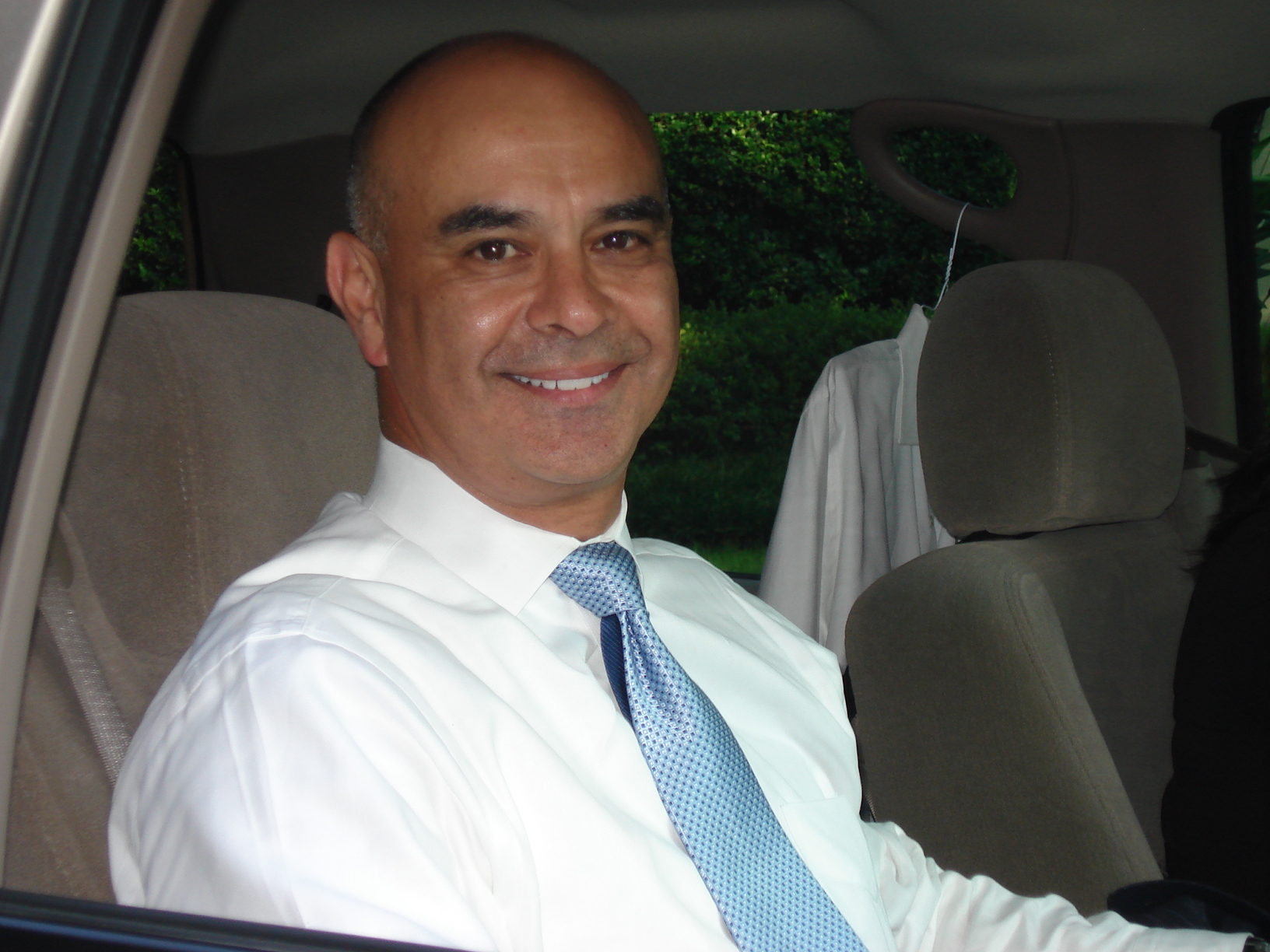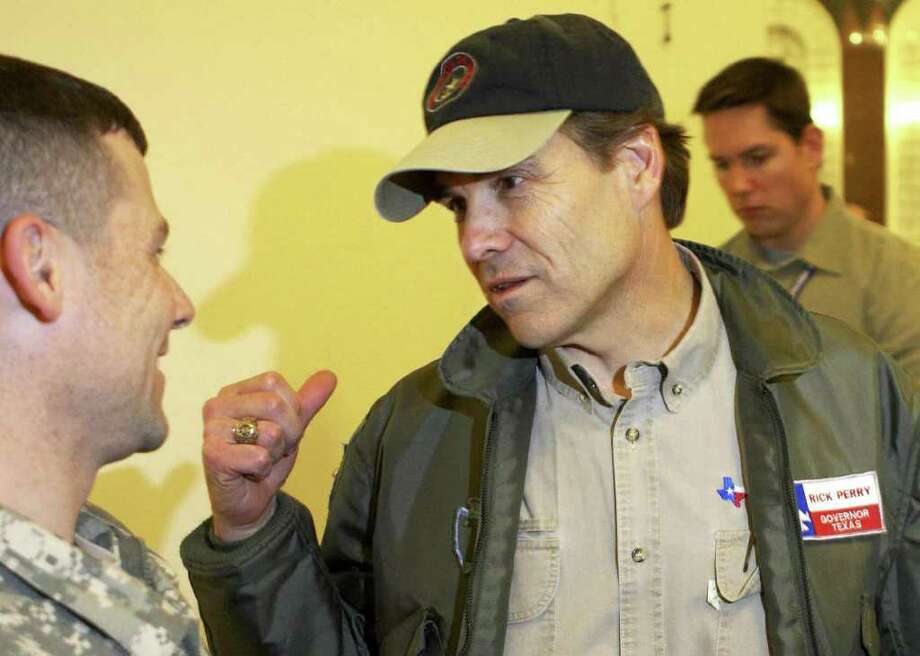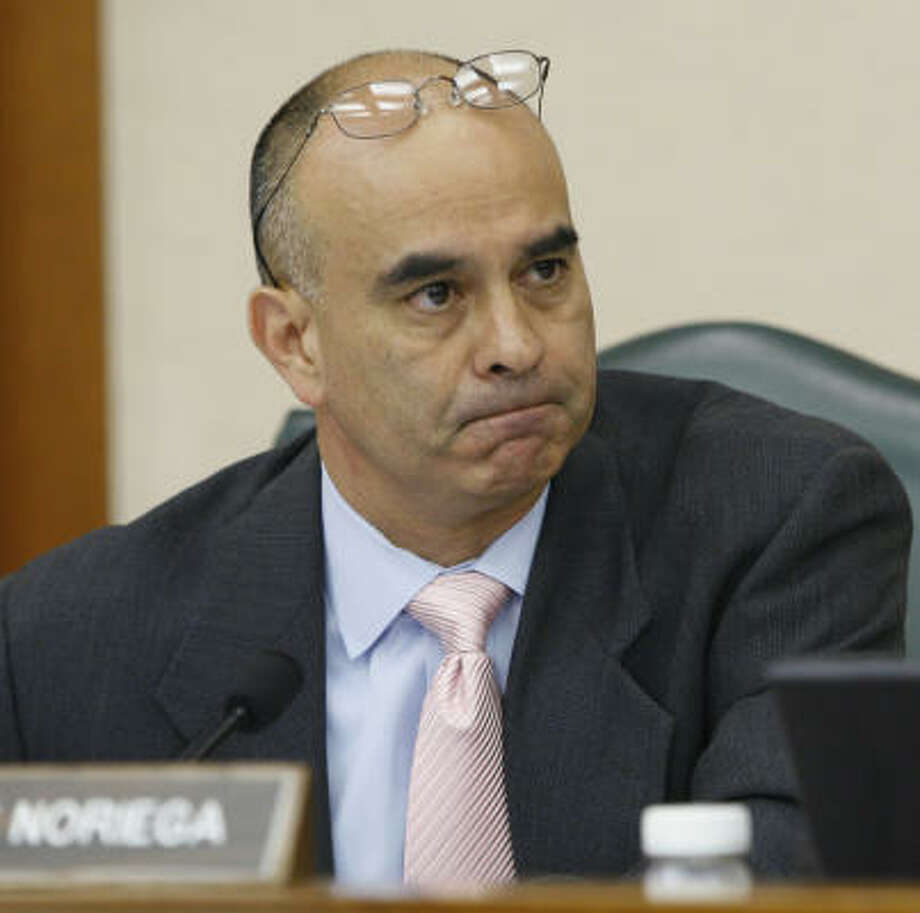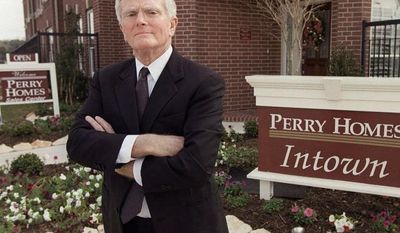Prologue
PROLOGUE
February 25, 2006
Michael DuBois staggered as a gust hit him, blowing cold air into his face. It wasn't the coldest day he had walked through since he had come to Houston, but it felt close. His coat - about two sizes too big, acquired from the Salvation Army, and with all of its buttons missing - flapped in the wind, and Michael briefly stuck a stack of leaflets under one armpit to grab it. Eventually getting hold of a lapel, he wrapped the jacket around himself and stuffed the leaflets into a pocket.
The primary, and his first vote, was next Tuesday. He'd been old enough half a decade ago, but back then he'd been concerned with more pressing issues. But this election was different. He'd never felt much attachment to Bush or Kerry, let alone those candidates in Louisiana who he knew had existed but couldn't remember anything about. Just a face in an ad that he'd forgotten when the Tigers came back on.
This time was different, though. He remembered leaving New Orleans - the collapsing bridges, the crowded Superdome with the holes in the roof, the bus to Houston, the nights in the Astrodome. He remembered seeing the officials on the stadium floor, directing aid workers and refugees around. The queen bees of a hive of activity. It looked to Michael like sheer, unadulterated, competence, and it had saved lives.
The candidate he was supporting had been doing the same thing at the George R. Brown Convention Center, managing the shelter of 7,000 people. One of his friends had been evacuated there, and according to him they'd had the situation in order from the moment the busses got there to the day the last person left, from beds to schools to housing. And he had taken up the role only a week after returning from fighting in Afghanistan.
Michael checked the street sign against his list of addresses. Walking to the nearest house on the list, he pulled out a leaflet and knocked twice on the door. A muffled voice sounded from the other side.
He could stand to look more alive, Michael thought, looking at the picture. It's not like people don't think he's serious.
The door opened.
"Mary-Anne Jennings?"
The person on the other side of the door nodded.
"Hi, I'm Mike DuBois, with the Rick Noriega campaign for the Democratic nomination for Governor. I was wondering if I could have a moment of your time..."
February 25, 2006
Michael DuBois staggered as a gust hit him, blowing cold air into his face. It wasn't the coldest day he had walked through since he had come to Houston, but it felt close. His coat - about two sizes too big, acquired from the Salvation Army, and with all of its buttons missing - flapped in the wind, and Michael briefly stuck a stack of leaflets under one armpit to grab it. Eventually getting hold of a lapel, he wrapped the jacket around himself and stuffed the leaflets into a pocket.
The primary, and his first vote, was next Tuesday. He'd been old enough half a decade ago, but back then he'd been concerned with more pressing issues. But this election was different. He'd never felt much attachment to Bush or Kerry, let alone those candidates in Louisiana who he knew had existed but couldn't remember anything about. Just a face in an ad that he'd forgotten when the Tigers came back on.
This time was different, though. He remembered leaving New Orleans - the collapsing bridges, the crowded Superdome with the holes in the roof, the bus to Houston, the nights in the Astrodome. He remembered seeing the officials on the stadium floor, directing aid workers and refugees around. The queen bees of a hive of activity. It looked to Michael like sheer, unadulterated, competence, and it had saved lives.
The candidate he was supporting had been doing the same thing at the George R. Brown Convention Center, managing the shelter of 7,000 people. One of his friends had been evacuated there, and according to him they'd had the situation in order from the moment the busses got there to the day the last person left, from beds to schools to housing. And he had taken up the role only a week after returning from fighting in Afghanistan.
Michael checked the street sign against his list of addresses. Walking to the nearest house on the list, he pulled out a leaflet and knocked twice on the door. A muffled voice sounded from the other side.
He could stand to look more alive, Michael thought, looking at the picture. It's not like people don't think he's serious.
The door opened.
"Mary-Anne Jennings?"
The person on the other side of the door nodded.
"Hi, I'm Mike DuBois, with the Rick Noriega campaign for the Democratic nomination for Governor. I was wondering if I could have a moment of your time..."
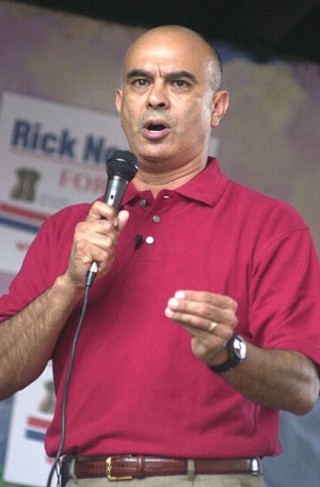
I'm Your Huckleberry
What if Rick Noriega ran for Governor of Texas in 2006?
by Stephen Brinson
HOUSTON - State Representative Rick Noriega officially kicked off his campaign for Governor yesterday, giving a speech to a cheering crowd at Milby High School. Standing behind a podium in Milby's basketball court, Noriega addressed a crowd of about 150 activists, students, and supporters, declaring that "Rick Perry is not the right choice for Texas. His tenure as Governor so far has proven that much."
Noriega has spent four terms as a member of the Texas Legislature, notably authoring the Texas Dream Act in 2001, which provided in-state tuition and financial assistance to immigrant children. But he is better known for his activities outside the legislature - a Lieutenant Colonel in the Texas National Guard who missed this year's legislative session to serve in Afghanistan, he also ran the refugee center at Houston's George R. Brown Convention Center after Hurricane Katrina, which at its peak sheltered more than 7,000 people.
He is the third candidate to announce his candidacy in the Democratic primary, following former U.S. Representative Chris Bell, also of Houston, and Felix Alvarado, an assistant principal from Fort Worth, both of whom announced in July. A spokesman for Bell's campaign stated that he "looked forward to campaigning against [his] colleague Rep. Noriega, a distinguished military man and a principled public servant."
Luis Saenz, director of the Perry campaign, also praised Noriega's "character" and "service to his state and his country", but expressed concern about the "negative" tone of Noriega's remarks. "I don't think he's all talk and no action," said Saenz, "but he talked like someone who is. That's unfortunate."
Meanwhile, insiders within the Perry campaign describe it as "thrown into turmoil". The Perry campaign had already been caught flatfooted, observers say, by the entries of Senator Kay Bailey Hutchison and Comptroller Carole Keeton Strayhorn into the race last month.
Rally attendees, some of whom came from as far as San Antonio and Dallas, stood in a clump in the midcourt or sat in bleachers as Noriega decried Perry's education policy. "Rick Perry doesn't believe that we should invest enough in our public schools to educate our students right," Noriega said. "I do."
Janet Morgan, one supporter, drove from College Station to hear Noriega speak. "As a teacher, I just don't think Rick Perry's right for our students." Another attendee, Houstonian David Villar, said, "I served in Iraq, and I think if we elect someone with military experience we won't regret it."
Many attendees were heartened by a recent poll released by the Noriega campaign. The poll of 1,000 voters showed that 30% of Texas likely voters supported Noriega, compared to only 32% for Perry. Another 18% supported independent candidate and country singer "Kinky" Friedman, while the remainder were undecided.
Many Democratic insiders, skeptical of Bell's and Alvarado's chances, were heartened by Noriega's entry into the race. "He's the best candidate the Democrats have," said lobbyist and influential former lieutenant governor Ben Barnes, "and probably the only one who can beat Perry, even in this election."
Noriega criticized the Perry administration's cuts to children's insurance, calling them "misguided". "As Governor," he said to cheers, "I will do everything I can to ensure that the fifth of our children who are uninsured receive the care they deserve."
Campaign manager Mark Bell said that Noriega will make another speech to IBEW Local 716 today before hosting a fundraiser in Austin tomorrow.
"I think we're in a much different situation now than we were four years ago," Noriega told reporters. "Rick Perry was a lot more popular then, for example."
"I know that some people aren't going to vote for me because of my name, or because I'm a Democrat, or because I'm bald. But the Governor of Texas ought to be subject to a job performance review every four years. This year, people have to decide whether to rehire a Governor who cut education funding, who cut children's health insurance, who's put many, many, Texas families in situations that are simply untenable. I don't mean to insult Governor Perry. But has he done a good job?"
"If you think he has," said Noriega, "then he's your huckleberry."
Last edited:
